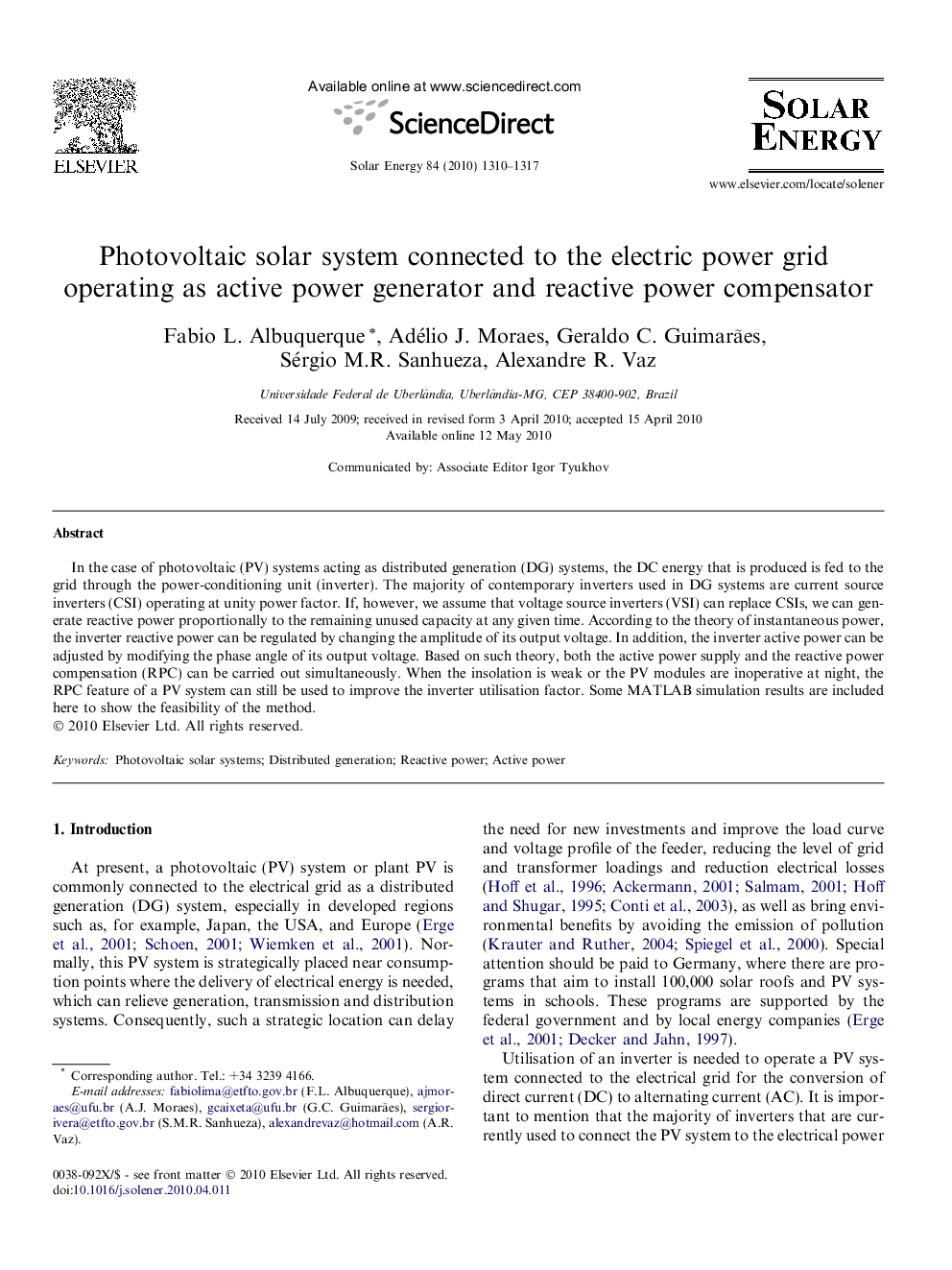| Article ID | Journal | Published Year | Pages | File Type |
|---|---|---|---|---|
| 1551490 | Solar Energy | 2010 | 8 Pages |
In the case of photovoltaic (PV) systems acting as distributed generation (DG) systems, the DC energy that is produced is fed to the grid through the power-conditioning unit (inverter). The majority of contemporary inverters used in DG systems are current source inverters (CSI) operating at unity power factor. If, however, we assume that voltage source inverters (VSI) can replace CSIs, we can generate reactive power proportionally to the remaining unused capacity at any given time. According to the theory of instantaneous power, the inverter reactive power can be regulated by changing the amplitude of its output voltage. In addition, the inverter active power can be adjusted by modifying the phase angle of its output voltage. Based on such theory, both the active power supply and the reactive power compensation (RPC) can be carried out simultaneously. When the insolation is weak or the PV modules are inoperative at night, the RPC feature of a PV system can still be used to improve the inverter utilisation factor. Some MATLAB simulation results are included here to show the feasibility of the method.
